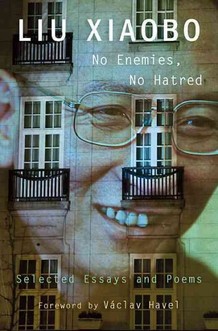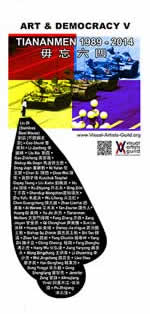Saturday, May 27, 2006
6:00 p.m. registration
6:30 p.m. dinner
960 North Broadway, LA Chinatown
VISUAL ARTISTS GUILD
cordially invites you to an
Annual Award Dinner
and
Tiananmen Commemoration
In the spring of 1989, Beijing erupted with the largest spontaneous demonstrations the Peoples’ Republic of China had witnessed in its 40-year history since its founding in 1949. The pro-democracy movement spread to over 30 cities around China before the world witnessed the horrors of the government’s brutal crackdown. As the Chinese people fled from the tanks and guns, they asked the international press to let the world know the truth.
They asked the world not to forget.
Featured Speaker
Yongyi Song
This is also the 40th anniversary of the Cultural Revolution (1966-1976) in China during which hundreds of thousands were killed or imprisoned as Mao secured his power in China. In 1999, Mr. Song, a then U.S. permanent resident, had already published two books on the Cultural Revolution when he was detained in China as he was collectiong 30-year-old newspapers for a new book on the same topic. After much international outcry, he was released after six months.
&
Honored Guests
The Hungarian Freedom Fighters
This is also the 50th anniversary of the Hungarian Revolution, we honor those who led the way in fighting for democratization and freedom from communist totalitarian control.
Date : Saturday, May 27, 2006
Time: 6:00 p.m. registration, dinner 6:30 p.m.
Place: Golden Dragon Restaurant
960 North Broadway, LA Chinatown inner Ticket: $25 Donor ticket: $50
Dinner is Chinese banquet style, vegetarian table available
For information and reservation please call 310-539-0234
Please mail check payable to Visual Artists Guild, P.O. Box 861132, L.A., Ca. 90086-1132
Postmarked by May 23, 2005
Name________________________________Phone___________________Fax______________
e-mail______________________________________________________________
Address_____________________________________City____________St._____Zip_________
Number of tickets __________@ $25.00 $____________ Vegetarian_______
Number of tickets __________@ $50.00 $____________
Total enclosed $____________
I cannot attend, enclosed is my donation for $__________________
Background Information: For more information on the Tiananmen Massacre, please click on the Tiananmen Story






